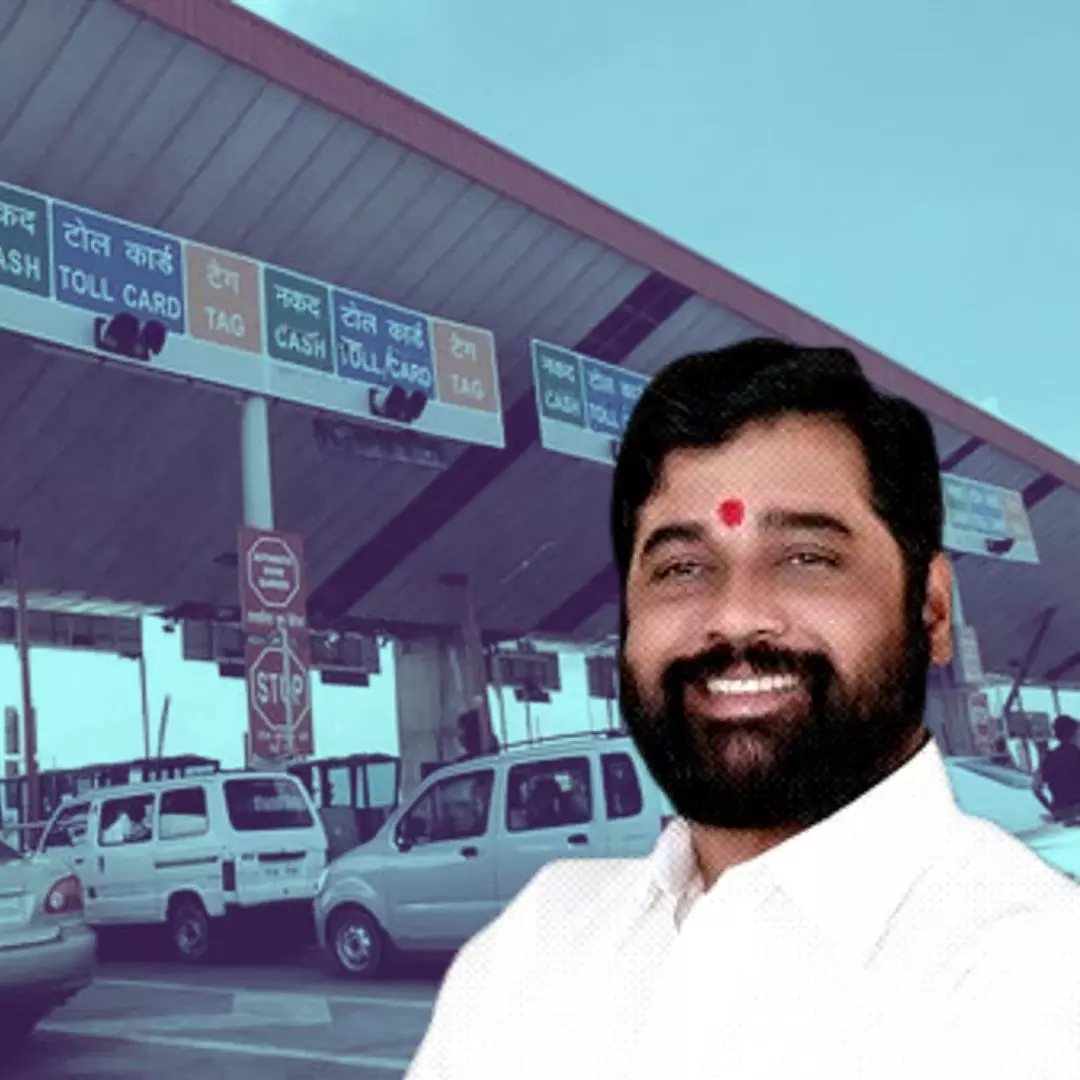
Image Credit: Maharashtra Gov, News24
Mumbai Announces Toll Waiver For Light Vehicles: All You Need To Know
Writer: The Logical Indian Crew
We are an independent and public-spirited digital media platform for Indian millennials. We report news and issues that matter as well as give you the opportunity to take action.
Maharashtra, 14 Oct 2024 12:12 PM GMT | Updated 14 Oct 2024 1:32 PM GMT
Editor : The Logical Indian Team |
We are an independent and public-spirited digital media platform for Indian millennials. We report news and issues that matter as well as give you the opportunity to take action.
Creatives : The Logical Indian Crew
We are an independent and public-spirited digital media platform for Indian millennials. We report news and issues that matter as well as give you the opportunity to take action.
Light motor vehicles will enjoy toll-free entry at five key points into Mumbai starting today, a move aimed at easing traffic and benefiting daily commuters, though heavy vehicles remain subject to toll fees.
The Maharashtra government has announced a toll exemption for light motor vehicles at five key entry points into Mumbai, effective from midnight, October 14. This decision, made ahead of the upcoming Assembly elections, aims to ease traffic and provide relief to daily commuters, benefiting approximately 2.8 lakh vehicles daily. However, heavy vehicles will still incur toll charges, raising concerns about potential revenue loss for the state.
Toll Exemption Details
Chief Minister Eknath Shinde revealed that light motor vehicles, including cars, jeeps, and vans, will no longer have to pay the previous toll fee of ₹45 at the five designated booths: Dahisar, LBS Road-Mulund, Eastern Express Highway-Mulund, Airoli Creek Bridge, and Vashi. This exemption is expected to alleviate congestion at these toll points, which handle around 3.5 lakh vehicles daily, with light motor vehicles constituting 80% of that traffic. Raj Thackeray of the Maharashtra Navnirman Sena welcomed the decision as a long-awaited victory for commuters but cautioned against viewing it as merely an election strategy.
Background Context
The tolls at these entry points were first implemented in 2002 to recover costs associated with infrastructure projects. Over the years, there have been numerous protests advocating for a toll waiver, particularly from political factions like the MNS and Shiv Sena. The decision comes amid criticism from opposition parties who label it a desperate move before elections. Political analysts are divided on whether this will positively impact the government’s standing in the polls or merely add to the financial burden on state resources.
 All section
All section














